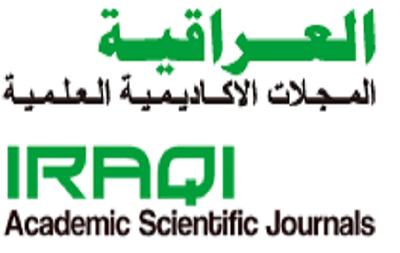معوقات تطبيق أنظمة الذكاء الاصطناعي فى كليات التربية البدنية وعلوم الرياضة بالعراق
محتوى المقالة الرئيسي
الملخص
يهدف البحث التعرف على معوقات تطبيق أنظمة الذكاء الاصطناعي فى كليات التربية البدنية وعلوم الرياضة بالعراق من خلال تحديد (المعوقات البشرية، المعوقات المادية ، المعوقات التشريعية، المعوقات الفنية ) لتطبيق أنظمة الذكاء الاصطناعي فى كليات التربية البدنية وعلوم الرياضية بالعراق، واستعمل الباحث المنهج الوصفي ، وذلك لملائمته لطبيعة البحث ، وقد تم إختيار عينة عشوائية قدرها (100) فرد من كل من أعضاء هيئة التدريس بكليات التربية البدنية وعلوم الرياضية بالعراق ، وإعتمد الباحث على استمارة الاستبيان فى جمع البيانات ، وكان من اهم النتائج ضعف امكانيات الكوادر البشرية فى التعامل مع الحاسب الالى ، عدم توافر ميزانية خاصة بالجامعات الحكومية لتطبيق أنظمة الذكاء الاصطناعي فى كليات التربية البدينة وعلوم الرياضة ، عدم توافر أجهزة اتصال حديثة متطورة داخل كليات التربية البدنية وعلوم الرياضة ، وكان من أهم التوصيات ضرورة التوسع فى الاستعانة بنظم وتطبيقات الذكاء الاصطناعي فى كليات التربية البدنية وعلوم الرياضة بالعراق.
تفاصيل المقالة

هذا العمل مرخص بموجب Creative Commons Attribution-NonCommercial 4.0 International License.
المراجع
Almansoori, S. S., & Al-Tahitah, A. N. (2021). The Role of Artificial Intelligence in The Decision-Making Process at The Ministry of Interior in The United Arab Emirates. Journal of Almaarif University College, 32(3).
Al-Mansour, W. M. J. (2022). Artificial Intelligence and Its Relationship to Improving the Quality of Administrative Decisions in the Ministry of Youth and Sports - Iraq [Unpublished PhD thesis]. Alexandria University.
Al-Mutairi, A. M. (2019). Artificial Intelligence as an Introduction to Developing Educational Decision-Making in the Ministry of Education in the State of Kuwait. Journal of Scientific Research in Education, 20(11), 573–588. https://doi.org/10.21608/jsre.2019.69880
Al-Qaraleh, O. (2021). The extent of the possibility of applying artificial intelligence in the faculties of physical education in Jordanian universities from the point of view of faculty members [Unpublished master’s thesis]. Mutah University.
Ameer, S. B. A. A.-A., & Abdel Hamid, A.-A. A. A. (2023). Obstacles to the use of artificial intelligence systems in handball education academies in Damietta Governorate, published research. Journal of Physical Education Sciences and Arts, 64(3), 734–763.
Asmaa, E.-S. M. A. S., Karima, M. M. A., & Mohamed, I. E.-D. A. (2020). Artificial Intelligence Applications and the Future of Educational Technology (1st ed, p. 13). Arab Group for Training and Publishing.
Barto, A. G., Sutton, R. S., & Anderson, C. W. (1983). Neuronlike adaptive elements that can solve difficult learning control problems. IEEE Transactions on Systems, Man, and Cybernetics, 5, 834–846.
Ghanem, A. M. (2020). Artificial Intelligence: A New Revolution in Contemporary Management (1st ed, p. 17). Modern Library for Publishing and Distribution.
Halawa, S. M. A. (2020). Requirements for the Application of Artificial Intelligence in Sports Federations According to the State Vision 2030. Scientific Journal of Physical Education and Sports Sciences, 24(19), 57–86. https://doi.org/DOI:10.21608/sjes.2020.261969
Hammad, S. H. (2022). The effect of cognitive exercises with educational technology in developing the ability to shift attention and performing counterattack skills in fencing. University of Anbar Sport and Physical Education Science Journal, 5(25).
Jaafar, A. M. (2020). The Role of Artificial Intelligence in Human Resources Management in Sports Institutions in the Arab Republic of Egypt. Journal of Comprehensive Education Research, 6(13), 19–34. https://journals.ekb.eg/article_144293_0.html
Odeh, A. Y., Shabib, S. S., Ghazi, M. A., & Mohammed, L. H. (2024). Developing physical education curricula in the age of artificial intelligence. Journal of Sports Education Studies and Research, 34(3), 37–56. DOI: https://doi.org/10.55998/jsrse.v34i3.687
Oudah, A., Abbood, R., Shabib, S., Aldewan, L., & Ghazi, M. (2024). Developing Physical Education Curricula Within the Framework of Digital Transformation to Achieve Sustainable Development. Teacher Education and Curriculum Studies, 9(3), 86–102. https://doi.org/10.11648/j.tecs.20240903.15





 IASJ
IASJ CC-BY-4.0
CC-BY-4.0 turnitin
turnitin ISSN
ISSN DOAJ
DOAJ Crossref
Crossref GoogleScholar
GoogleScholar Orcid
Orcid